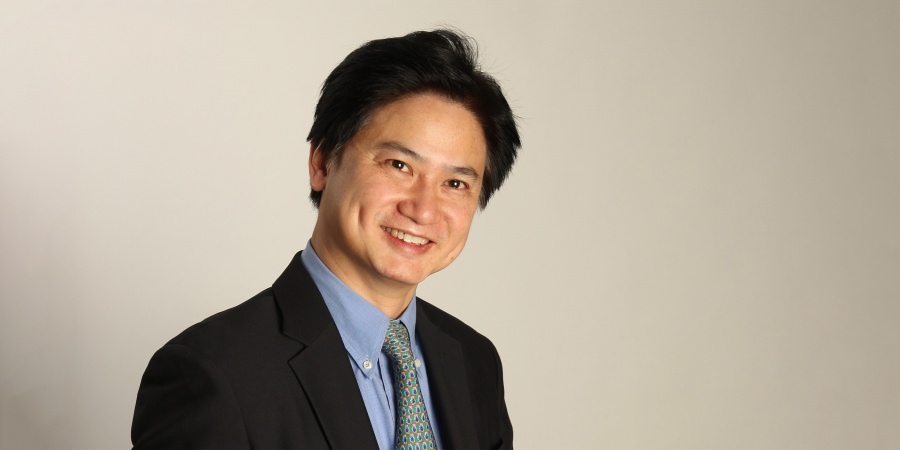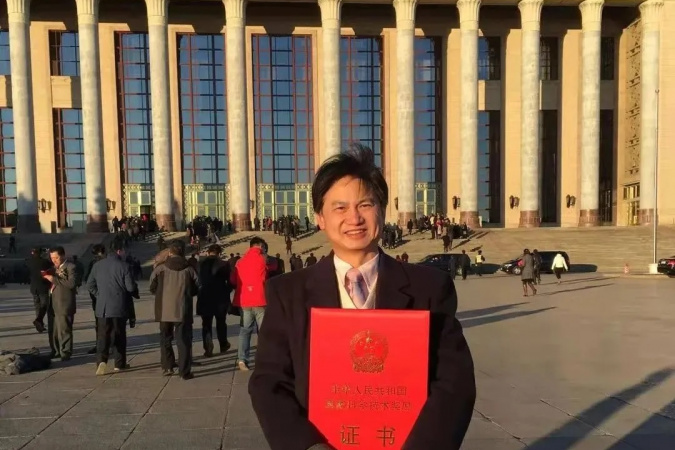Prof. Charles NG Wins 2020 State Natural Science Award
The research project “State-dependent Constitutive Framework for Unsaturated Soils and its Applications” led by Prof. Charles NG Wang-Wai of the Hong Kong University of Science and Technology (HKUST) has won the second-class honor of the 2020 Natural Science Award from the State Council today for its contributions on mitigating construction accidents and natural disasters caused by unsaturated soils.
Unsaturated soil, a ubiquitous material exhibiting solid, liquid and gas properties, is crucial to our living as it not only makes up slopes but is also a foundation for all buildings on Earth. As the moisture content and stress level of unsaturated soil are governed by climate change and construction activities, understanding its coupled properties of seepage, deformation and strength is of utmost importance in preventing construction accidents such as slope and embankment failures, which not only threaten lives and properties but would also hinder sustainable development of society. The issue has become ever more pressing today as climate change continues to intensify.
The research team led by Prof. Charles Ng, Dean of HKUST Fok Ying Tung Graduate School and Chair Professor at the Department of Civil and Environmental Engineering, has been conducting systematic and detailed research on unsaturated soils since 1995 and has made breakthroughs in different areas including the stress dependency of seepage characteristics, suction-path dependency of deformation behavior as well as suction dependency of dilatancy and strength. They have also developed a novel constitutive framework, providing a profound theoretical basis for safer construction of infrastructures such as slopes and pavements, and helping to overcome challenges brought by climate change.
Prof. Ng, who is also HKUST’s CLP Holdings Professor of Sustainability and the Vice-President of HKUST (Guangzhou), is delighted about winning the award. He attributed the honor to the concerted efforts among his team and collaborators, and expressed special thanks to Prof. LEE Chack-Fan from the University of Hong Kong. “Universities should strengthen collaborations if we were to compete with other world-class universities. Collaboration is meaningful and certainly contributes to Hong Kong and our country,” he said. Other collaborators of this project include researchers from the Institute of Geographic Sciences and Natural Resources Research of the Chinese Academy of Sciences.
The set of novel and innovative unsaturated soil testing apparatuses developed by the team has been adopted by nearly 300 research institutes, universities and government departments worldwide. Prof. Ng expected that with the Belt and Road Initiative and more cities investing in infrastructures, the theory and application of unsaturated soils will play an even more important role.
Prof. Ng has been recognized by many international and national awards. These include the Mao Yisheng Youth Award in 2002 from the Chinese Institution of Soil Mechanics and Geotechnical Engineering, the Overseas Young Scholar Award in 2007 from the National Science Foundation of China, the Scientific Advancement Technological Award (1st class) in 2013 from the Ministry of Education, and Scientific and Technological Progress Award (2nd class) in 2015 from the State Council of China. Amongst the international awards are best paper awards from the Southeast Asian Geotechnical Society, the Canadian Geotechnical Society, the Institution of Structural Engineers in the UK, and the Institution of Civil Engineers in the UK. In 2017, he was elected as the first Chinese President of the International Society for Soil Mechanics and Geotechnical Engineering (ISSMGE) since its establishment in 1936.
Related link:
- HKUST WeChat news (May 3, 2023): 頒發國家自然科學獎及教育部自然科學獎予港科大教授
(This news was originally published by the HKUST Public Affairs Office here.)


